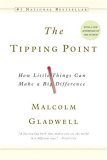Summary | Excerpt | Reviews | Readalikes | Genres & Themes | Author Bio

Critics' Opinion:
Readers' Opinion:
First Published:
Feb 2000, 279 pages
Paperback:
Dec 2001, 304 pages
Goudsmit has analyzed one of the towns hit hardest by the PCP epidemic, the mining town of Heerlen in the Dutch province of Limburg. Heerlen had a training hospital for midwives called the Kweekschool voor Vroedvrouwen, a single unit of which — the so-called Swedish barrack — was used in the 1950s as a special ward for underweight or premature infants. Between June 1955 and July 1958, 81 infants in the Swedish barrack came down with PCP and 24 died. Goudsmit thinks that this was an early HIV epidemic, and that somehow the virus got into the hospital, and was spread from child to child by the then, apparently common, practice of using the same needles over and over again for blood transfusions or injections of antibiotics. He writes:
Most likely at least one adult — probably a coal miner from Poland, Czechoslovakia, or Italy — brought the virus to Limburg. This one adult could have died from AIDS with little notice. . . . He could have transmitted the virus to his wife and offspring. His infected wife (or girlfriend) could have given birth in a Swedish barrack to a child who was HIV infected but seemingly healthy. Unsterilized needles and syringes could have spread the virus from child to child.
The truly strange thing about this story, of course, is that not all of the children died. Only a third did. The others did what today would seem almost impossible. They defeated HIV, purged it from their bodies, and went on to live healthy lives. In other words, the strains of HIV that were circulating back in the 1950s were a lot different from the strains of HIV that circulate today. They were every bit as contagious. But they were weak enough that most people — even small children — were able to fight them off and survive them. The HIV epidemic tipped in the early 1980s, in short, not just because of the enormous changes in sexual behavior in the gay communities that made it possible for the virus to spread rapidly. It also tipped because HIV itself changed. For one reason or another, the virus became a lot deadlier. Once it infected you, you stayed infected. It stuck.
This idea of the importance of stickiness in tipping has enormous implications for the way we regard social epidemics as well. We tend to spend a lot of time thinking about how to make messages more contagious — how to reach as many people as possible with our products or ideas. But the hard part of communication is often figuring out how to make sure a message doesn't go in one ear and out the other. Stickiness means that a message makes an impact. You can't get it out of your head. It sticks in your memory. When Winston filter-tip cigarettes were introduced in the spring of 1954, for example, the company came up with the slogan "Winston tastes good like a cigarette should." At the time, the ungrammatical and somehow provocative use of "like" instead of "as" created a minor sensation. It was the kind of phrase that people talked about, like the famous Wendy's tag line from 1984 "Where's the beef?" In his history of the cigarette industry, Richard Kluger writes that the marketers at R. J. Reynolds, which sells Winston, were "delighted with the attention" and "made the offending slogan the lyric of a bouncy little jingle on television and radio, and wryly defended their syntax as a colloquialism rather than bad grammar." Within months of its introduction, on the strength of that catchy phrase, Winston tipped, racing past Parliament, Kent, and L&M into second place, behind Viceroy, in the American cigarette market. Within a few years, it was the bestselling brand in the country. To this day, if you say to most Americans "Winston tastes good," they can finish the phrase, "like a cigarette should." That's a classically sticky advertising line, and stickiness is a critical component in tipping. Unless you remember what I tell you, why would you ever change your behavior or buy my product or go to see my movie?
© 2000 by Malcolm Gladwell





The Flower Sisters
by Michelle Collins Anderson
From the new Fannie Flagg of the Ozarks, a richly-woven story of family, forgiveness, and reinvention.

The House on Biscayne Bay
by Chanel Cleeton
As death stalks a gothic mansion in Miami, the lives of two women intertwine as the past and present collide.

The Funeral Cryer by Wenyan Lu
Debut novelist Wenyan Lu brings us this witty yet profound story about one woman's midlife reawakening in contemporary rural China.
Your guide toexceptional books
BookBrowse seeks out and recommends the best in contemporary fiction and nonfiction—books that not only engage and entertain but also deepen our understanding of ourselves and the world around us.